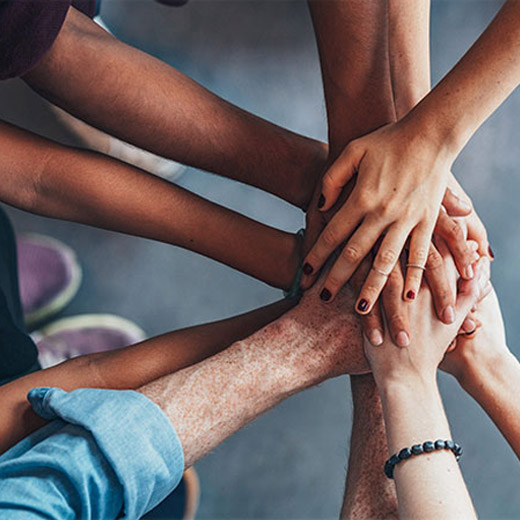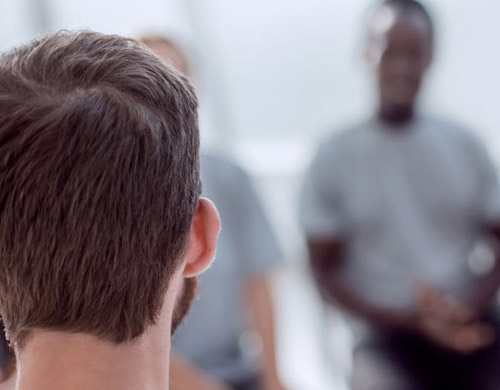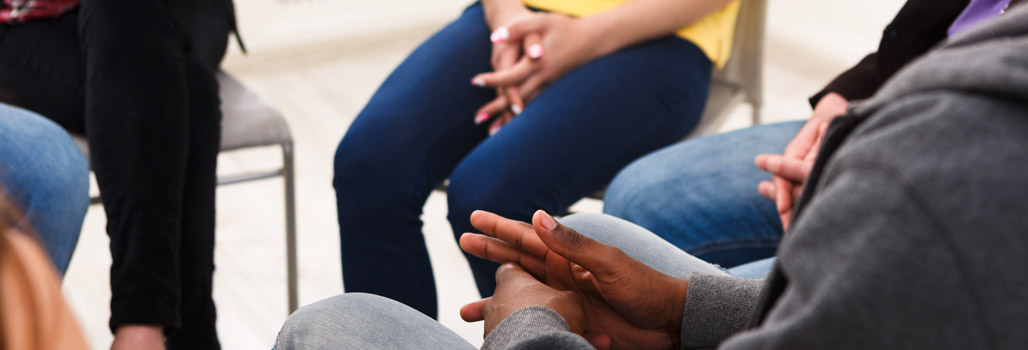Drug and alcohol use disorders are challenging to address when they hurt you or someone close to you. Although addiction is a disease, it is treatable when evidence-based rehabilitation approaches are explored. Long term recovery from addiction is possible.
Read more on how integrated rehabilitation services can help you or a loved one in starting and maintaining a sober future.
What is Addiction Rehab (Rehabilitation)?
Addiction ‘rehabilitation’ is a holistic term that introduces both the therapeutic and medical interventions to treat drug addiction & prescription drug addiction.
Rehab treatment is most effective when it is tailored to your own needs and incorporates a medical detox, inpatient and outpatient care, as well as aftercare support.

Facts & Statistics about Addiction in Modoc
Prevalence of Substance Use Disorder, by Drug Type
(IN THOUSANDS)
- 2,7578.5%Any Substance
- 2,0886.4%Alcohol
- 1,0683.3%Ilicit Drugs
- 2060.6%Pain Medication
Drug- and Alcohol-Induced Deaths by Age Group, California, 2016
- Alcohol-Induced
- Drug-Induced
- 18 to 250.5
- 9.6
- 26 to 354.3
- 13.9
- 36 to 6424.2
- 22.9
- 65+23.7
- 9.4
Drug Use, by Selected Type and Age Group California, 2015 to 2016
- 12 to 17
- 18 to 25
- 26+
- Marijuana*13.2%
- 34.0%
- 13.5%
- Misuse of Pain Medications3.5%
- 8.0%
- 4.3%
- Cocaine0.8%
- 7.2%
- 1.8%
- Heroin0%
- 0.4%
- 0.2%
What are the treatment options available in Modoc?
Integrated rehab treatment is usually the most effective manner in which to deal with the primary sources of drug and alcohol use disorders. It is crucial to treat the symptoms of addiction, but coping strategies need to be considered, in order for you to work with the triggers that lead to the drug or alcohol dependency.

Private Residential Programs
A residential treatment program requires you to live at the treatment center and receive all your treatment within the property. Its key benefit is that you will receive integrated treatment and support day by day. By moving out of your home environment and into a rehab facility, you will protect yourself from any stressful triggers that culminate in developing a drug use disorder.
You are less susceptible to relapse when you finish your treatment program in a controlled facility where the environment is supportive. Residential addiction treatment programs are recommended for those with strong drug or alcohol dependencies, co-occurring disorders or dual diagnoses.
Recovery from addiction is possible if you partake in a residential treatment program, however if you wish to maintain sober living you will have to rise above the difficulties that are associated with the first year of recovery. Completing your residential treatment program is the beginning of your new, independent life and you must focus on goal-setting for your drug and alcohol free future.
Do You Need Help?
We work together towards sobriety.

Sober Living Programs
You can develop the skills needed to live substance-free by engaging in a sober living program, which will guide you through the early stages of recovery. This will be achieved by:
- Sending a house manager to check in on you every day
- Working on the kinds of behaviors that are needed in recovery
- Building on supportive and meaningful connections with other peers in recovery
Outpatient Programs
The flexible approach to outpatient programs means that you do not have to stop attending your workplace or family commitments, as you can come to the treatment facility and have regular treatments at your own pace.
Outpatient programs offer addiction recovery through:
- Education on the misuse of drugs
- Group therapy and individual sessions as vehicles for long-term recovery – You can expect to be enrolled in an outpatient program for a minimum of three months, and may remain in it for longer than a year if necessary.
Detox Only Programs
A detox program is the first step in rehab and is done to break your physical dependency on a substance by removing all traces of it from your system. As your body starts to work without having the drug it was dependent on, symptoms of withdrawal usually begin.
Once you tackle the difficult phase of physical withdrawal you will begin the second phase of your rehab journey, working to heal from the underlying causes of psychological dependency in order to put a stop to the cycle. Many drugs cause withdrawal and cravings for a period of time after they have been removed from your body. Your chances of relapsing will be mitigated as you learn the important skills necessary for long-term abstinence.
Paying for Private Treatment
If you do proceed with private treatment, you can use your health insurance to make a claim or pay for treatment yourself. Many private insurance providers will contribute to some of the costs associated with a rehab program, which includes a medical detox, therapy program and aftercare support. The amount of cover given will differ based on your policy details and your provider’s.
We recommend you understand how much cover you can claim before enrolling in a program. Our Verify Your Insurance page will help you to determine the amount of cover you are eligible for.
If you do not make a claim against your health insurance, you must pay upfront for your treatment programme. Many rehab providers offer payment plans to clients who may struggle to pay for treatment upfront.

State Funded Programs
If you are battling substance dependence and have limited funds to fund private treatment, you may apply for a state-funded addiction treatment program.
These programs make use of government funds from state budgets, Medicaid and federal government to assist recovery with:
- Medical assessment and detox if required
- Rehab therapy and extended care
People lacking private healthcare insurance or live in households with low combined income may enroll for a state-funded treatment program. In order to start the application, you will need to provide:
- Proof of low income
- Proof of residence
- Your medical details regarding your drug or alcohol misuse
- Proof you can live in the US legally
Extensive information about the application process can be found on https://www.grants.gov/
In order to locate contact details for your state agency, this document provides the necessary information.
The following state-funded addiction rehab programs are available in Modoc:
Alcohol and Drug Services Modoc County Behavioral Health
441 North Main Street, Alturas, CA 96101
530-233-6312
https://www.co.modoc.ca.us/Strong Family Health Center
1203 Oak Street, Alturas, CA 96101
530-233-4591
https://strongfamilyhealthcenter.com/
Maintaining Addiction Recovery in Modoc
The early stages of addiction recovery can be difficult once you leave a rehab center. You had the benefits of professional support in a controlled environment at the rehab center. Once you leave rehab there may be new triggers that put your coping skills to the test. If you had a severe dependency or if you leave rehab without the appropriate social support, you will find long term recovery to be more challenging. Relapse can happen if you don’t have the appropriate aftercare or support to guide you into your new future.
The following AA/NA meetings are available in Modoc:
Brown Bagger's Discussion AA meeting
In person, Discussion, Open and Wheelchair accessible:
204 W 12th St #5, Alturas, CA 96101
Friday 12:00 PM
https://nnig.org/meetings/Alturas Hilltoppers AA Meeting
In person and Open: 307 E 1st St
Alturas, CA 96101
Friday 8:00 pm
https://nnig.org/meetings/Alturas Adds Group NA Meeting
Open: 105 East 1st Street
Alturas, California 96101
Monday 8:00 pm – 9:00 pm
https://www.narcotics.com/
Aftercare & Alumni Programs
An aftercare program is a resource to support your recovery when you go back to your daily life. Because life doesn’t always go the way we want it to, and 60% of individuals may relapse upon leaving treatment, taking part in an aftercare program is needed support for you when life gets tough.
Once you get close to the end of your rehab program, you will discuss the therapies and counseling services most beneficial to you long-term, and a relapse prevention program will be created to help you sustain it. After completing your addiction treatment program, you will be eligible to join an alumni community program so you can remain in contact with staff and ex-clients. This fantastic network gives you access to our special events, including ongoing support and mentorship from other former clients also in recovery. You might also want to return the favor by showing support towards others.
Support Groups (Fellowship Meetings)
Support groups remain an integral function of long-term recovery because social structures encourage sobriety. The 12-steps are is maintained by support groups like Narcotics Anonymous and Alcoholics Anonymous, which have a long history of supporting people in recovery by hosting group meetings.
During support group meetings, other members will share their stories and learn from the experiences of others. Companionship, empowerment and accountability for our actions are key to long-term recovery, and meetings provide many with the necessary tools to stay sober.

Support for Families & Children Affected by Addiction

Addiction impacts on those living in the household to different degrees. All members of the family unit need guidance with a household addiction, not only the individual struggling with addiction.
By taking part in family support groups, families can learn to manage stress more effectively, and be able to support your family member in recovery.
Get help and support for the Family with the below support groups:
- Parents of Addicted Loved Ones
- SMART Recovery Family & Friends
- NAMI Family Support Groups
- Al-Anon
- Families Anonymous
- Alateen
- Nar-Anon









